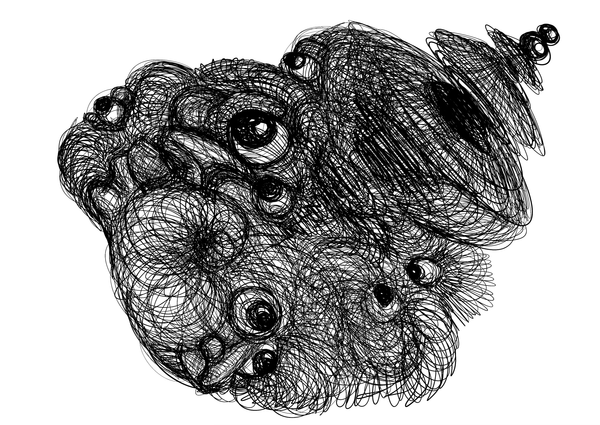The Parade That Didn't Exist
Plus some photos from the Sydney Webworm popup.
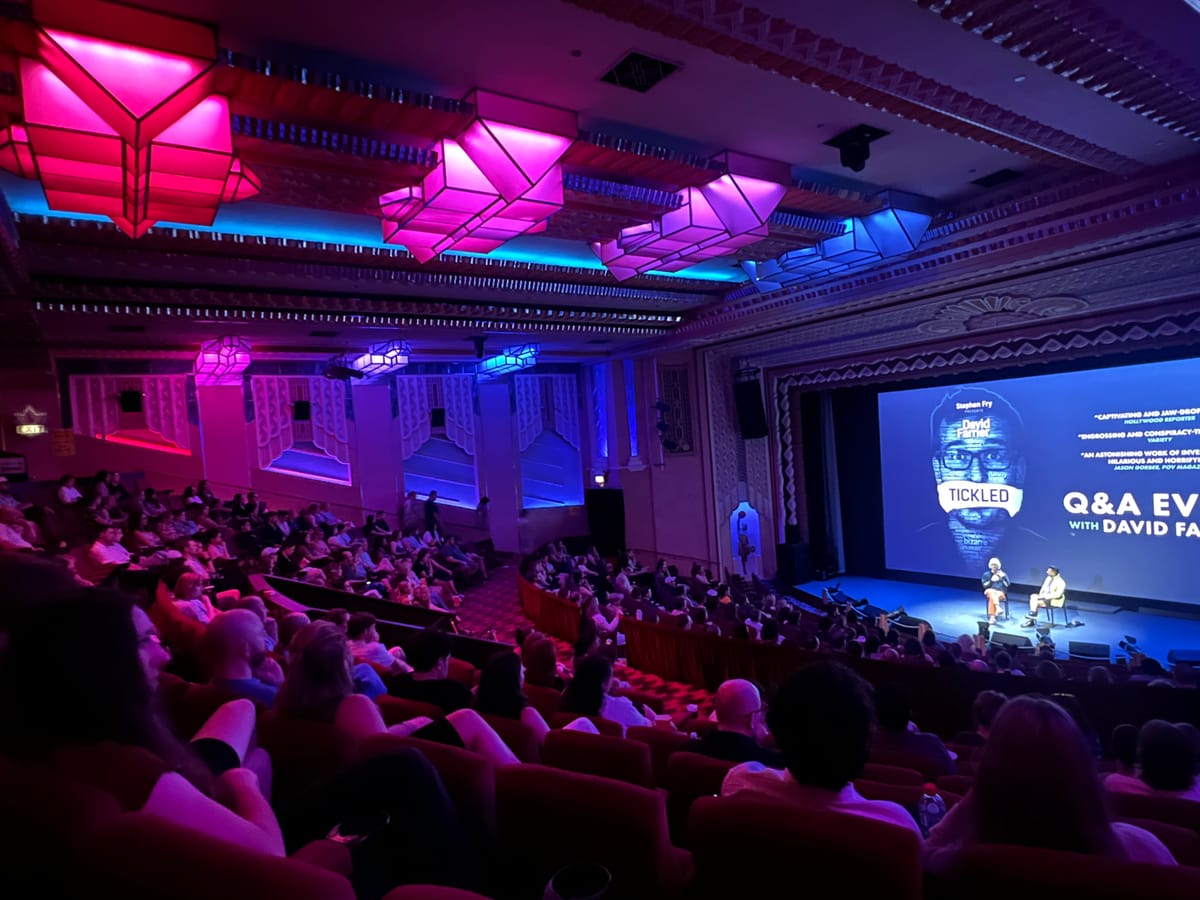
Hi,
I just wanted to take a moment to acknowledge all the stories you shared under my last newsletter about my shitty day.
Some of your own shitty days were hilarious. Others were devastating. They involved aging parents and lost pets, things lost and things found. Some felt like chaos theory in action. Some felt fated. I dunno. It’s all still a bit of a mystery to me. Don’t trust anyone who says they have this whole life thing figured out. Literally no-one does and if they say they do, they’re lying.
As is always the case with Webworm, I came away from the comments section feeling a sense of our common humanity.
Also a special shoutout to the truly diabolical story Michael shared to top my quarters story. Someone needs to lock this man up immediately:
“Whenever I travel I collect coins and small notes as a memory of my travels. The US issues quarters regularly to celebrate national parks, states and inspirational leaders. Because I am a collector I have to get them all.
I discovered that if you put notes in vending machines you get quarters back in change even if you didn’t buy anything. Like a madman I would often load notes into vending machines and collect quarters, look for ones I was missing and pocket the rest. After a while I decided that the weight of the quarters was getting a bit ridiculous so I purchased some cardboard coin sheaths (I am sure there is a better word for this) for the surplus.
On my last night in a small town in Colorado I offered to take my hosts out for dinner. A lovely evening with good friends ensued. Time to pay. I have cash for the meal but I need to pay the tip.
The meal wasn’t so cheap and I asked my hosts if it would be okay to pay the tip in rolled up coins. They awkwardly laughed but agreed it would be okay. I called over the waiter and explained my proposal. Again, slightly awkward consent given, and I pay for the meal in notes — and give him about $100 in rolled up coins for the tip component.
The coins are precariously balanced in the payment wallet with the notes, and the waiter retreats to no doubt tell his colleagues about the stupid kiwi. On his way from the table he trips, the coins fall, and the cardboard sheathes break and nearly 400 quarters rapidly spread across the restaurant.
Over the next 10 minutes most of the patrons and staff search for quarters and my friends advise me they will not be returning to the restaurant in the future.”
Before we get onto Tony Stamp’s monthly Totally Normal column about a parade that never existed, I wanted to say thanks to all those who showed up to the Webworm popup in Sydney a few nights ago. We watched Tickled, did a big Q&A session, mingled and chatted, and had a lil’ bit of merch from the Webworm store on hand.
Thanks to The Age for mentioning things, too.
One reader flew in from Perth, and another created what I thought was a Webworm logo cross-stitch, but is apparently an “appliqué”.
Here are a few photos:


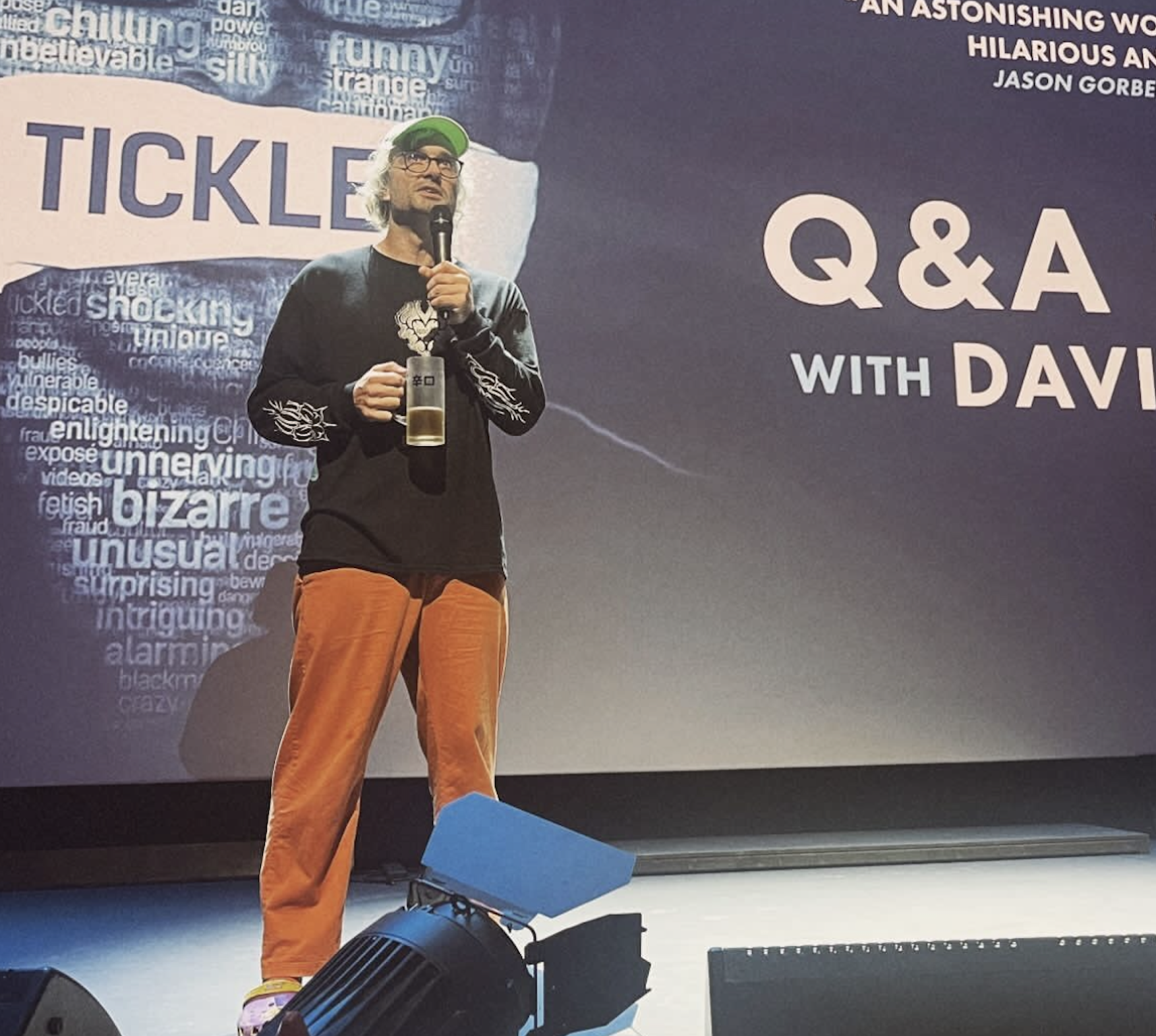


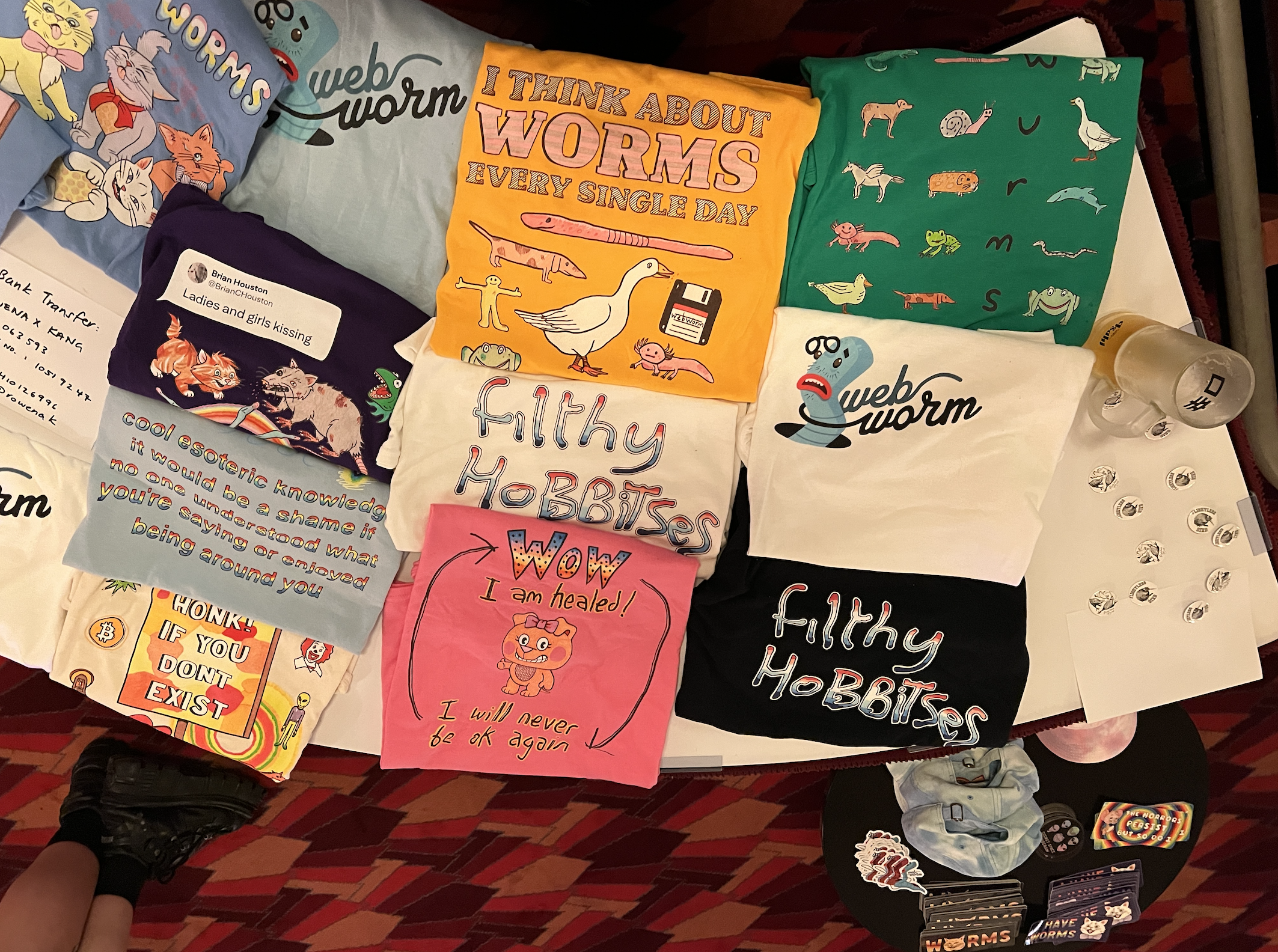
I’m looking forward to our next event in Melbourne next Friday at the Nova. All the free Webworm tickets are gone, but the cinema added a 2nd screening that same night and there are some tickets here. I’ll be at the Nova from 6pm on December 6, so come and say hi beforehand!
I love doing these popups, and hope to do some in the US/UK ASAP.
It’s nice to be reminded of the internet’s safe spaces, and to meet in person. Because as Tony Stamp argues in this week’s Totally Normal, “It’s been strange to reach adulthood and see things that used to be awe-inspiring slip into disfunction.”
David.
The Parade That Didn’t Exist
Totally Normal #32, with Tony Stamp
Recently, in Dublin, thousands of people turned up for a parade that didn’t exist.
It was enough of a crowd to disrupt public transport, but when people began dutifully lining O’Connell St, they started noticing the lack of barricades, and signage, and police.
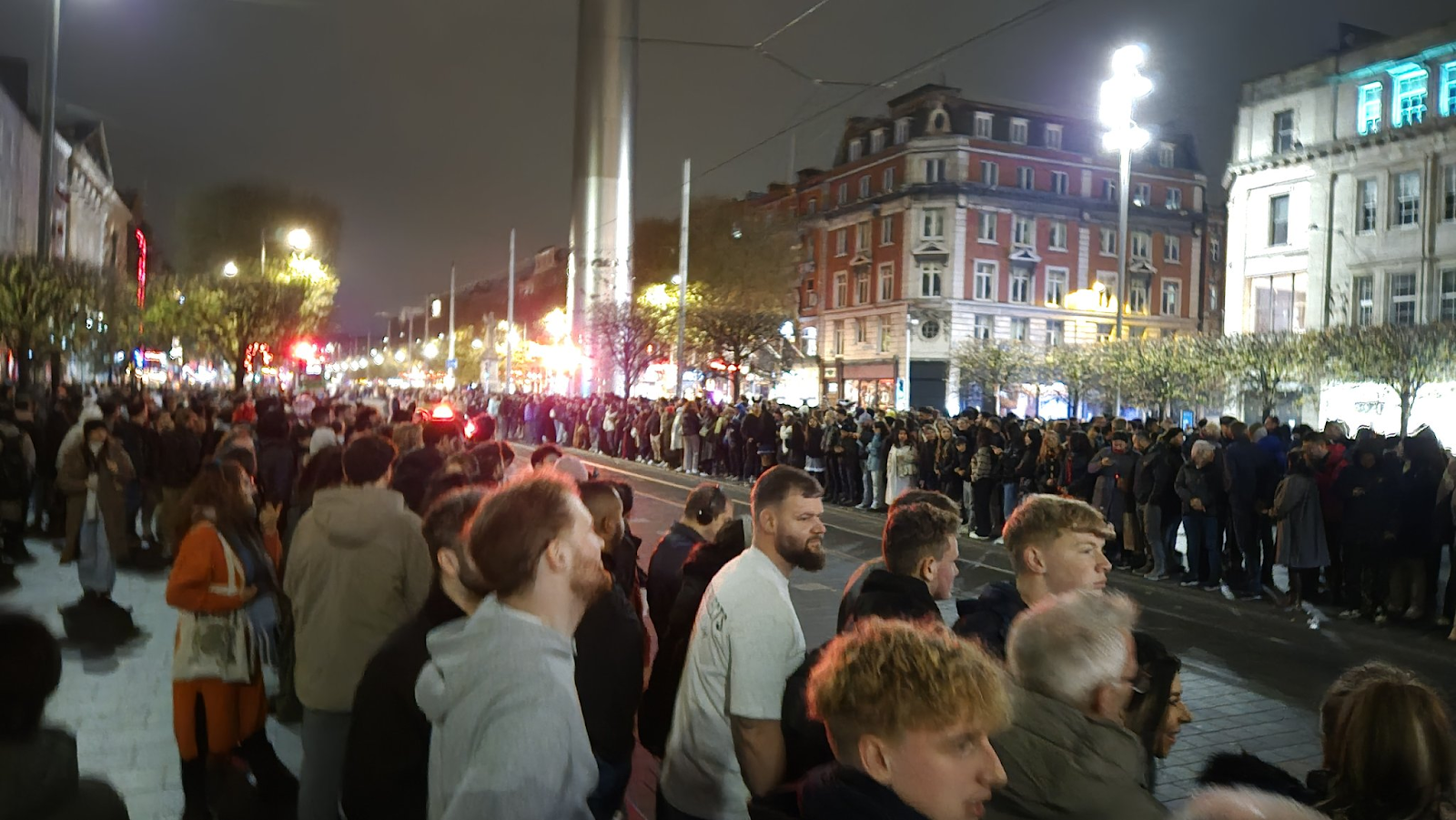
Initial reporting suggested a prank of some kind, but the reality is much more ominous, a hint of things to come in a world where our systems of communication are becoming wrecked.
It turned out that people had gotten bad info from a website set up by grifters (ding), powered by ‘A.I.’ (ding ding), and boosted by Google search (ding ging ding!).
Curious locals who searched for “Dublin Halloween parade” were served myspirithalloween.com on the first page of results. The page itself (which doesn’t exist anymore), promoted similar non-existent events around the world, supplemented by generative A.I. slop imagery.

You’ve probably noticed that Google sucks now. It’s been going downhill for years, clogged with spam, and recent changes seem like the nail in the coffin.
A friend recently told me he pays a monthly subscription to use a non-Google search engine, something I suspect will become more common.
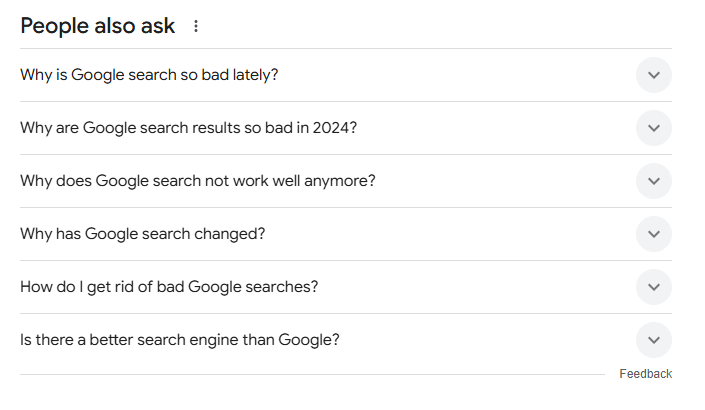
A resonant tweet from software engineer Tracy Chou: “i’m mad that everything about the internet that was fun & useful 10 years ago is broken now. this site, obviously. reviews are astroturf lies. search is ai hallucination. no place to share with friends & family without influencer / meme / polarized content overrunning the feed.”
It certainly feels that way, doesn’t it? It’s been strange to reach adulthood and see things that used to be awe-inspiring slip into disfunction. Especially when they have come to inform how we live our lives.
Let’s start with an example:

Ok fine, this is a result tailored to my history and so on. But the second result is a clothing wholesaler, then the third is Farrier again. Fourth is an agricultural site that actually defines what a webworm is. Shouldn’t that be first?
This has probably happened to you all a million times, but to belabour my point, when I searched for ‘firebrand’ recently, I got a full page about some 2023 TV show starring Jude Law and Alicia Vikander.
More damning, the engine itself knows what’s up: If I type out “are google resul”, it autocompletes to “are google results getting worse”. So presumably people have been wondering.
I copied something I saw Cory Doctorow (who coined the term ‘enshittification’) tweet, and typed “google enshittificiation” into the search bar, and lo:

Google rolled out its AI Overviews feature in May, which has spewed out a plethora of incorrect results ever since. Some viral examples include recommending the consumption of rocks, using glue to make pizza, and, well…
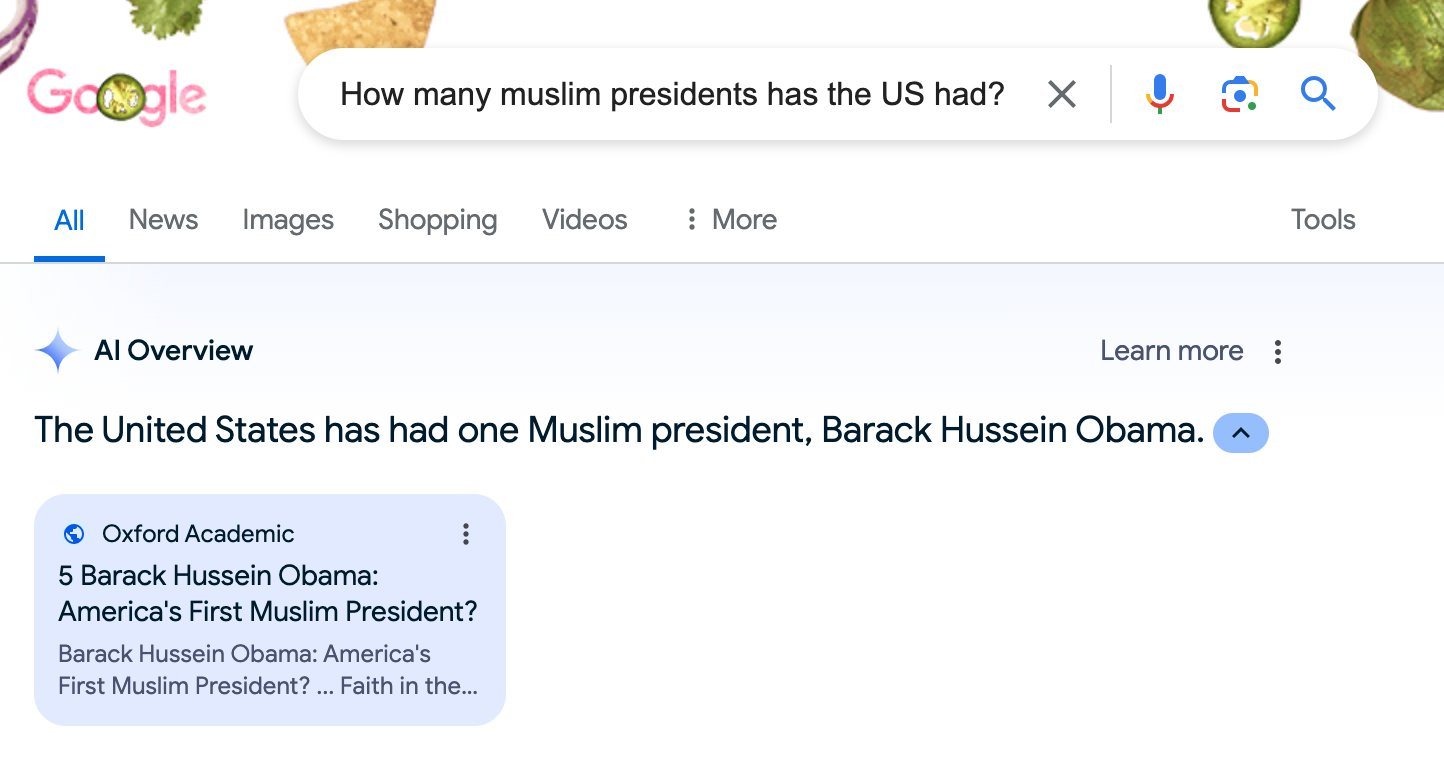
I personally have encountered incorrect results many times when dealing with Overviews. A smart friend advised me to enter “-AI” as part of my search text, which is great, but I bristle at having to do this each time now.
Ask yourself: If generative AI is this sloppy and flat out wrong when providing search results, how is it fucking up the other ways it’s used?
Overviews are just the latest change. In Forbes, Dimitar 'Mix' Mihov noted that Google search used to be great, but the addition of Lens image recognition led to complaints, as did its changes to the Maps function.
As Mihov writes, “a recent report has suggested that Google’s obsession with accelerating monetization velocity—a strategy prioritizing revenue over usability—is at the core of Search’s erosion. A spokesperson has since shot down such claims as baseless speculation.”
Sacrificing quality for the sake of constant profit growth? I mean, yeah, that sounds like… [gestures at everything].
Their spokesperson can shoot down anything he wants, but a recent study by Leipzig University suggests otherwise.
The study concluded that “SEO, affiliate marketing, and AI-generated content are all being used to muddy search results.”
If you don’t know what SEO, or ‘search engine optimisation’ is, then I envy you. Suffice to say that attempting to get your webpage into search results has led a lot of outlets to compromise their product.
To put it another way, we all work for Big Tech now, whether we know it or not.
Google using AI in its search engine is nothing new. They’ve been celebrating it for years now. But reading these pieces touting its brilliance brings up a familiar feeling: being told that things are getting better, when your own lived experience tells you the opposite.
In August, Julia Love and Davey Alba reported for Bloomberg that site owners were allowing their content to be scraped by Overviews because the same tool tracks sites for search results. And because these sites rely on Google to generate traffic, they have no choice.
Google has designed a system that penalises sites that don’t take part.
Pretty shady. But then, Google search is an illegal monopoly. Don’t believe me? Let’s check with Google search:
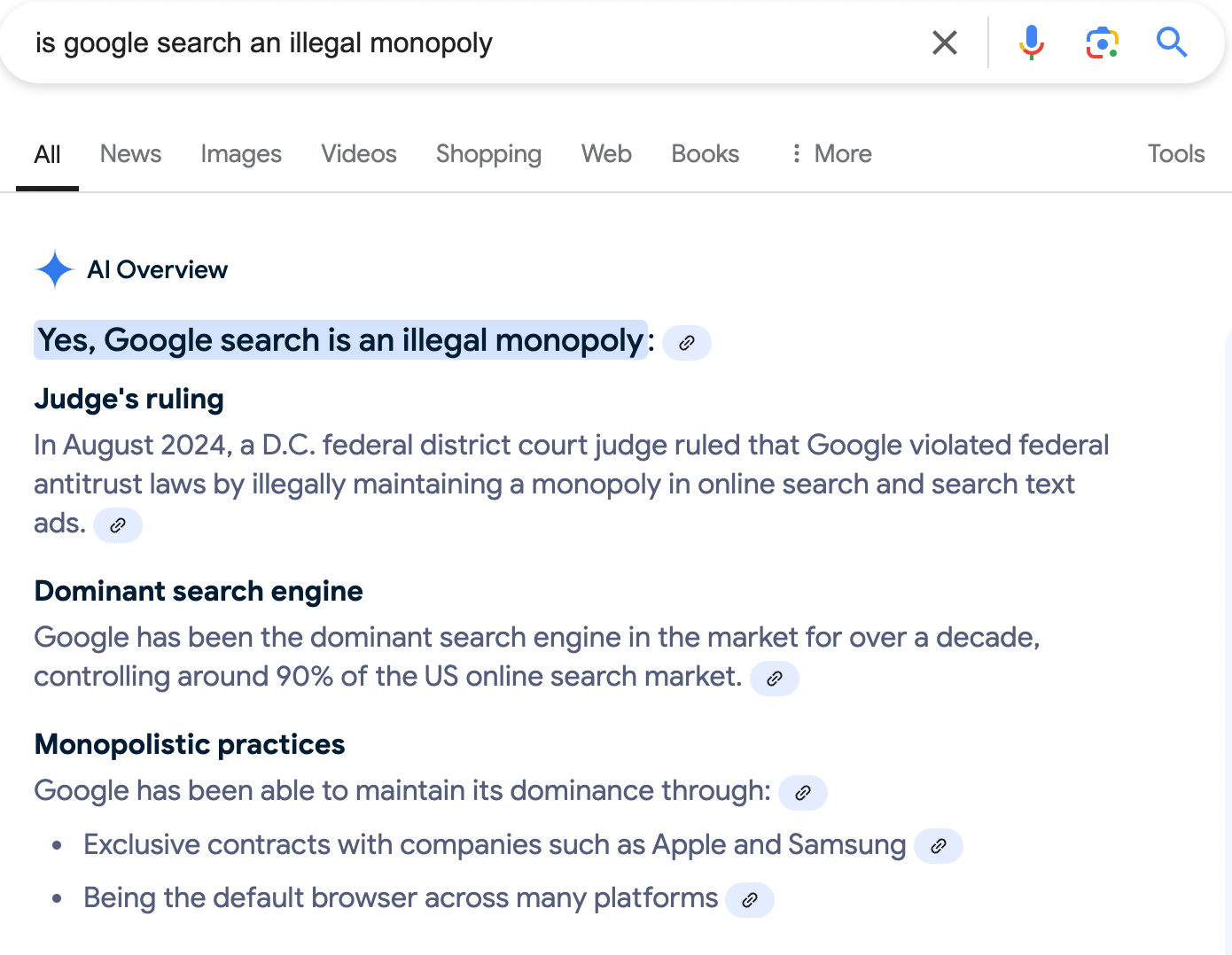
Were I to go through all the problems with Google we’d be here all day. If you’d like to know more, I recommend starting with The Man Who Killed Google Search by the always excellent Ed Zitron.
I mainly wanted to stress that this isn’t normal. The Big Tech barons seem to operate without scrutiny. Definitely without consequence. One of them will be in the US government soon.
I stare at the screen and think about all the extra power and water used to fuel generative AI, which is presented as non-optional, and which makes the product WORSE.
Time to ask my friend about that subscription-based alternative.
-Tony Stamp.



